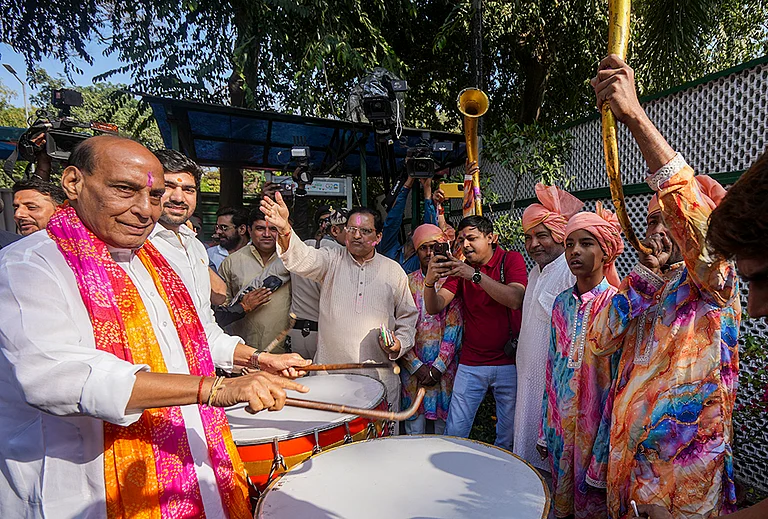Mani Shankar Aiyar also uses a conversation as the prologue to his book. But unlike Chamman Mian’s, this is not an imaginary conversation. He reproduces it from a 1995 issue of the now-defunct Sunday magazine. The conversation is with Arun Shourie, on Islam. It highlights how Islam is understood and misunderstood in Indian public discourse, sympathetically regarded and wilfully distorted, sometimes over the heads of decent Muslims, and couched in arcane theology.
Aiyar is not trying to elevate himself by reproducing a magazine discussion with Shourie. His is a different ploy. With Shourie as the counterpoint, Aiyar sets himself up in bold relief as the "secular fundamentalist".
But the prologue circumscribes the book somewhat. It places a threshold up to which Aiyar will go. Since he goes well beyond all thresholds, the prologue gives a false impression at the very outset. Instead of sustaining an architectural design for his secular argument, Aiyar descends every now and then to the smart-alec TV debates and sundry fora designed for the professional seminarist.
New Delhi’s seminar circuit is an excruciatingly misleading affair. It deludes participants into believing that they are part of some imaginary Bloomsbury circle. The core of Aiyar’s thinking is Nehruvian. And to give him his due, he wore his convictions on his sleeve even when it was not fashionable to do so.
Throughout the book Aiyar is irrepressibly himself. At the very outset, he reveals himself in two subtle strokes: the dedication is to his mother—"religious and secular". Just below that, he quotes Nehru in a letter to Mahatma Gandhi: "It is all very well for the likes of Sapru (Tej Bahadur) and me to talk pompously and in a superior way of our tolerance in matters of religion but neither of us has any religion worth talking about".Aiyar pulls no punches in demolishing the communal case that India became free not after 200 years of British rule but after a thousand years: "Curiously this ideological construct does not take into account the period of nearly a thousand years of non-Hindu period from Ashoka’s conversion to Buddhism in 3rd century BC to the last great Buddhist monarch, Harshavardhan of Kannauj."
The book takes up all the issues "communalists" have raked up—from Partition to conversions, Article 370, Kashmir, Babri Masjid, Shah Bano and scores of issues that have raised communal temperatures resulting in such horrors as Gujarat, which also Aiyar dwells on in detail.
He does not flinch from exposing the Hindu Mahasabha element in the Congress. After all, this stream had defeated Nehru at the Nasik session of the Congress in 1950. But within a year Nehru was back, roaring: "If any person raises his hand to strike down another on the ground of religion, I shall fight him till the last breath of my life, both as the head of the government and from the outside".
So to Aiyar the struggle is continuous and if, in waging it, he sometimes gets shrill, it can possibly be ascribed to a lapse in composure. But, above all, Confessions is quintessentially Aiyar: endearing and exasperating, depending on which end you approach him from.



















